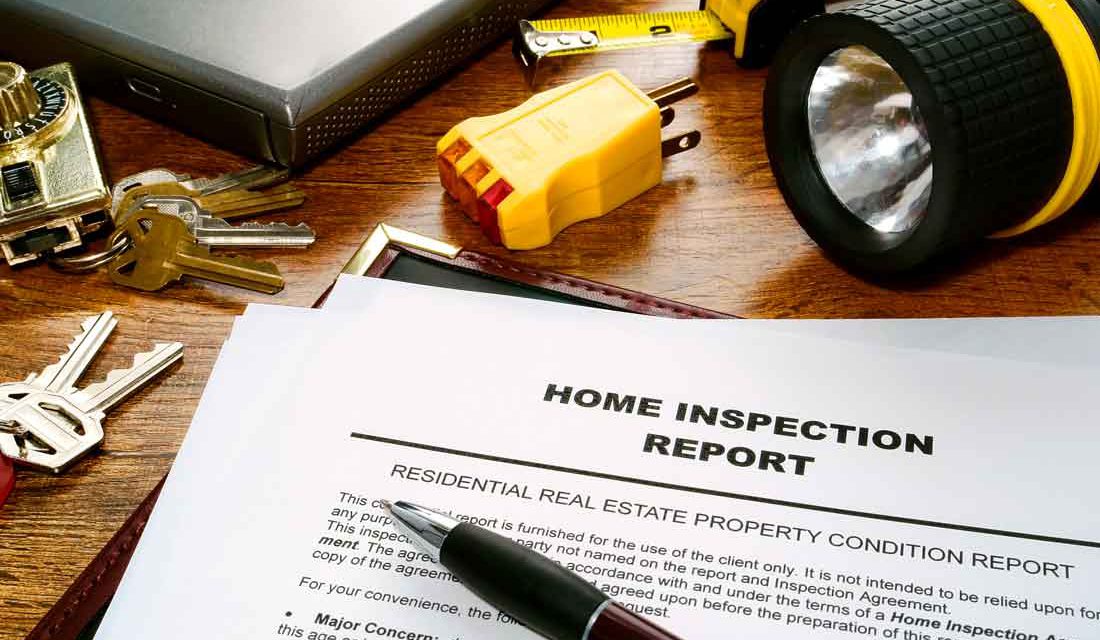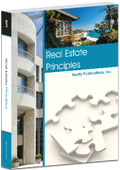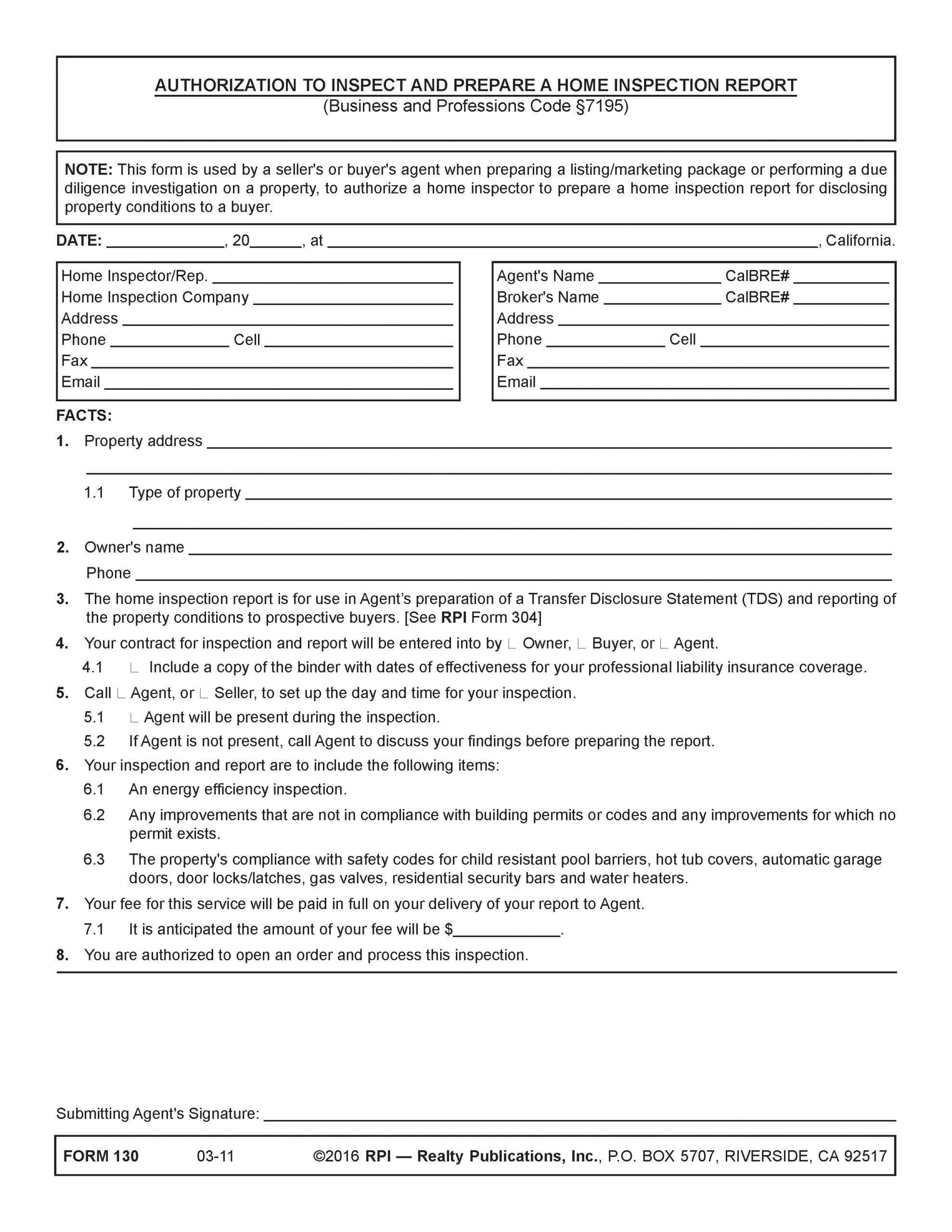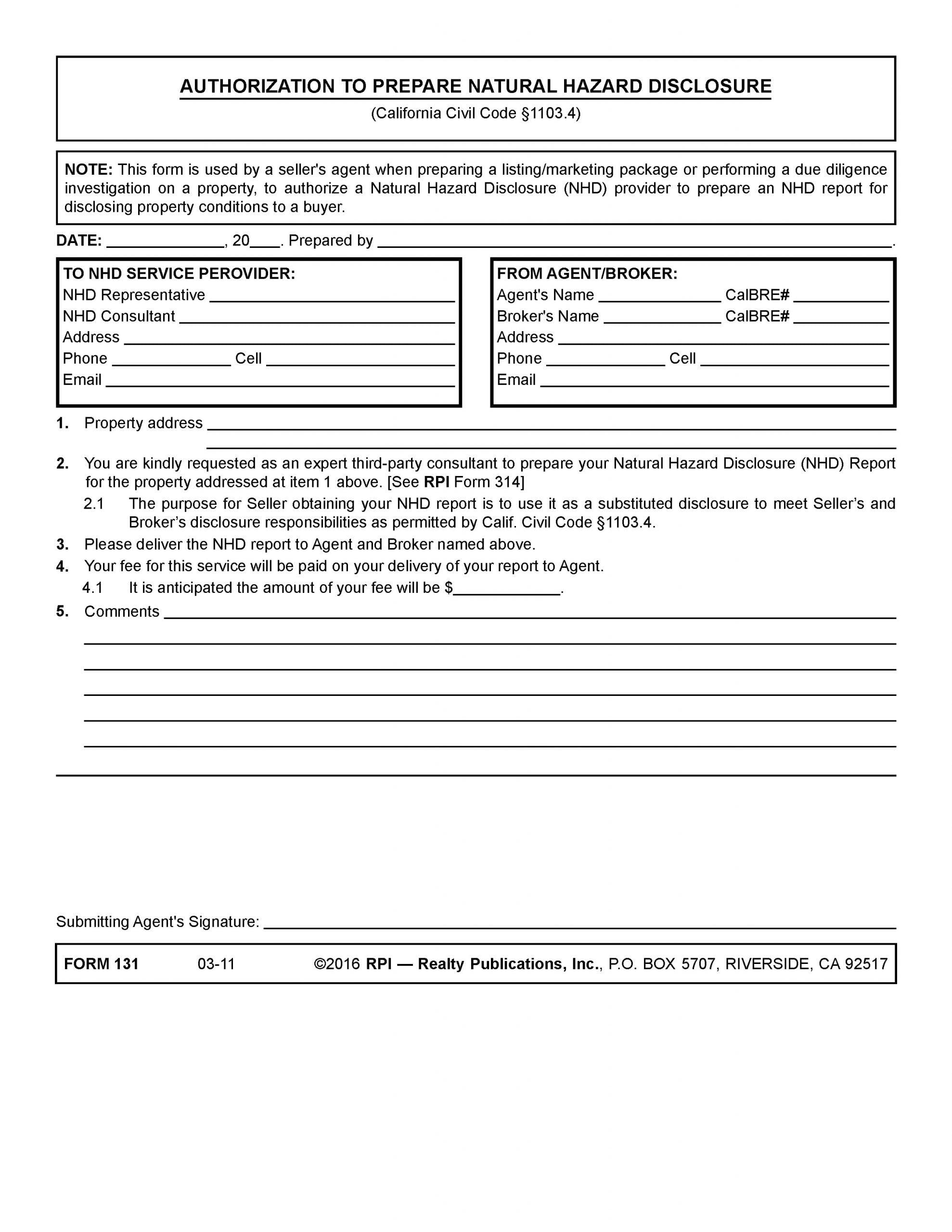Investigative reports flesh out the marketing package
The primary objective of a seller’s agent on taking a listing is to solicit and locate prospective buyers. In the process, the seller and their agent need to sufficiently disclose the property’s condition to the buyer before they submit an offer.
The seller’s agent owes the buyer a general duty to provide critical information voluntarily and promptly on the listed property that might adversely affect its value. This property information is collectively referred to as material facts. [See RPI e-book Real Estate Principles, Chapter 13]
Upfront factual disclosures notify the buyer of any property conditions known to the seller or the seller’s agent, correcting the asymmetry of information which exists in a transition. Without this information, a prudent buyer is unable to set a price and make an informed offer — in effect, flying blind.
At the listing stage, the seller’s agent gathers property data and organizes it into a marketing package. [See RPI Form 133]
The marketing package contains third-party investigative reports prepared by unbiased professionals or government agencies addressing essential aspects of the property’s condition that are of concern to reasonable buyers.
Related article:
Two recommended third-party reports to be included in the marketing package are:
- a home inspection report (HIR) to accompany mandated property disclosures [See RPI Form 130]; and
- a Natural Hazard Disclosure Statement (NHD), provided by an NHD expert. [See RPI Form 131]
Negotiations with a prospective buyer trigger a full disclosure when the buyer or their agent seek additional information on a listed property beyond the data contained in a promotional flier.
Related Video: Transparency by Design, Not Default
Click here for more information on third-party investigative reports.
The HIR attaches to the seller’s TDS
An HIR, paid for by the seller and prepared by a local home inspection company, is necessary so:
- the agent may properly market the property to prospective buyers and their agents; and
- the seller may avoid any claims made by buyers that the condition of the property is misrepresented. [See RPI e-book Real Estate Principles, Chapter 21]
In addition, the seller uses the HIR to best prepare their Condition of Property Transfer Disclosure Statement (TDS). [See RPI Form 304]
The HIR is then attached to the seller’s TDS. Both are included in the agent’s thorough marketing package presented to prospective buyers seeking additional property information.
The TDS needs to be handed to prospective buyers as soon as practicable. Typically, this is when they first express serious interest in the property and when negotiations commence. [See RPI e-book Real Estate Principles, Chapter 15]
On a tardy delivery of the TDS, occurring after the seller enters into a purchase agreement, the buyer may:
- cancel the purchase agreement under a statutory three-day right to cancel [Calif. Civil Code §1102.3];
- demand the seller to correct any defects or reduce the price accordingly before escrow closes [See RPI Form 150 §12.2]; or
- close escrow and demand the seller to cover the costs of curing any defects. [Jue v. Smiser (1994) 23 CA4th 312]
Related Video: The Inspection and Report
Click here for more information on the home inspection and report.
The marketing role of a home inspection for a seller’s agent
The seller’s agent is primarily responsible for gathering information about the condition of the listed property and delivering the information to prospective buyers. [CC §2079]
The seller’s agent needs to request and use the HIR (on behalf of the seller) to supplement their observations during the mandatory competent visual inspection of the property when reviewing and approving the seller-prepared TDS.
When a buyer goes under contract without reviewing an HIR, the seller’s agent loses control over the marketing and sales process — and exposes themselves and their seller to claims of misrepresentation.
The buyer’s reliance on an HIR relieves the seller and their agent from liability for property defects not observed during the seller’s agent’s visual inspection, or which ought to have been known to the seller or the seller’s agent, known as red flag defects.
However, when the seller’s agent relies on the HIR to avoid liability for faulty preparation of the TDS, the seller’s agent needs to select a competent (read: non-negligent) home inspector to prepare the HIR. [See RPI e-book Real Estate Practice, Chapter 26]
Related Video: A Home Inspector’s Qualifications
Click here for more information on hiring a home inspector.
On receipt of the HIR, the seller may voluntarily eliminate some or all of the deficiencies noted in the report.
However, sellers are not obligated to eliminate any defects they disclose in the TDS and HIR when selling a property, unless they negotiate with the buyer to do so. Here, the seller’s agent orders an updated report for use with the TDS.
Related article:
Hiring a home inspector
When prospective buyers are informed about the precise condition of the physical property before they submit an offer to purchase, the seller avoids later demands to correct property defects or to adjust the sales price before escrow closes — or worse, cancellation or post-closing litigation.
With the HIR and TDS delivered to the buyer prior to the seller’s acceptance of the purchase agreement, the property has been purchased transparently “as disclosed.” [See RPI Form 304]
Editor’s note — When the home inspector who prepared the HIR is unknown to the buyer’s agent, it is good practice for the buyer’s agent to also recommend as part of the buyer’s due diligence investigation that the buyer conduct their own inspections pertaining to all physical aspects of the property.
Related Video: Word-of-the-Week: Home Inspection
Click here for more information on home inspections.
An agent uses the Authorization to Inspect and Prepare a Home Inspection Report published by Realty Publications, Inc. (RPI) to document a request for a home inspection. It authorizes the selected home inspector to conduct an inspection and prepare an HIR on behalf of the principal. [See RPI Form 130]
The Authorization to Inspect and Prepare a Home Inspection gives the home inspector specific information regarding the requested inspection, including:
- the property address [See RPI Form 130 §1];
- the type of property being inspected [See RPI Form 130 §1.1];
- the seller’s name and phone number [See RPI Form 130 §2];
- the contracting party requesting the HIR (whether the seller, buyer or agent) [See RPI Form 130 §4];
- contact information for the person to arrange the inspection [See RPI Form 130 §5];
- a confirmation whether the agent will be present for the inspection [See RPI Form 130 §5.1]; and
- the anticipated fee to be paid upon the delivery of the HIR to the agent. [See RPI Form 130 §7]
The form also contains instructions to the inspector that the HIR is to include, such as:
- an energy efficiency inspection [See RPI Form 130 §6.1];
- any improvements not in compliance with building codes and for which no permits exist [See RPI Form 130 §6.2]; and
- the property’s compliance with safety codes for child resistant pool barriers, hot tub covers, automatic garage doors, door locks/latches, gas valves, security bars and water heaters. [See RPI Form 130 §6.3]
Editor’s note — Although Home Energy Raters are specially trained and certified, any home inspector may perform a home energy audit, provided the audit conforms to the California Home Energy Rating System (HERS) regulations established by the California Energy Commission. [Calif. Business & Professions Code §§7199.5, 7199.7]
Related article:
A unified NHD disclosure for all real estate sales
Natural hazards are risks to life and property which exist in nature due to a property’s location. [See RPI e-book Real Estate Principles, Chapter 17]
Natural hazards are separate from the man-made aspects of the property. The existence of a hazard due to the geographic location of a property affects its desirability, and thus its value to prospective buyers — a material fact requiring disclosure.
Locations where a property might be subject to natural hazards include:
- special flood hazard areas, a federal designation;
- potential flooding and inundation areas;
- very high fire hazard severity zones;
- wildland fire areas;
- earthquake fault zones; and
- seismic hazard [CC §1103(c)]
Related Video: Word-of-the-Week: Natural Hazards
Click here for more information on natural hazards.
Hazards, by their nature, limit a buyer’s ability to develop the property, obtain insurance or receive disaster relief. The existence or lack of a natural hazard on a particular property irrefutably affects the property’s desirability, and thus, its value to a prospective buyer.
Whether a seller lists the property with a broker or markets the property themselves, the seller needs to disclose any natural hazards known to the seller, including those readily available in public records.
A seller or their agent present these disclosures in the statutorily-mandated Natural Hazard Disclosure (NHD) Statement, a form unique to California. [See RPI Form 314]
Related Video: The NHD Form for Uniformity
Click here for more information on preparing the NHD form.
Use of an expert to avoid seller liability
Delivery of natural hazard information is mandated on all types of real estate. [CC §1103.1(b)]
A seller and their agent need to exercise ordinary care in gathering natural hazard information, either on their own or with the assistance of an NHD expert, such as a geologist.
Here, the expert prepares the NHD form for the seller and the seller’s agent. The seller and their agent will review the completed form, add any comments, sign it and include it in the marketing package to be delivered to prospective buyers. [CC §1103.4(a)]
For the seller and their agent to rely on an NHD report prepared by a third party, the seller’s agent need only:
- request an NHD report from a reliable expert in natural hazards, such as an engineer or a geologist who has studied public records;
- review the NHD form prepared by the expert and enter any actual knowledge the seller or seller’s agent may possess, whether contrary or supplemental to the expert’s report; and
- sign the NHD Statement provided by the NHD expert and deliver it with the NHD report to prospective buyers or buyer’s agents on commencement of negotiations (always prior to the seller’s acceptance of an offer). [CC §1103.2(f)(2)]
The Natural Hazard Disclosure encourages brokers and their agents to use natural hazard experts to gather and report the information publicly available from the local planning department rather than do the work themselves. This practice relieves the seller’s agent of any liability for errors unknown to the agent.
Related Video: Delivery of the NHD to the Buyer
Click here for more information on delivering the NHD form.
Hiring an NHD expert
An agent uses the Authorization to Prepare Natural Hazard Disclosure published by RPI to document a request for an inspection ordered by behalf of the seller (or buyer). It authorizes an NHD expert to prepare an NHD report for disclosing property conditions to a buyer. [See RPI Form 131]
The Authorization to Prepare Natural Hazard Disclosure contains:
- the property address [See RPI Form 131 §1];
- a statement that the expert is being retained to prepare an NHD report for the identified property [See RPI Form 131 §2];
- the identity of the person the NHD report will be delivered to when complete [See RPI Form 131 §3]; and
- the anticipated fee owed the expert on delivery of the report to the agent. [See RPI Form 131 §4]
Related article:
Form-of-the-Week: Purchase Agreement and Natural Hazard Disclosure Statement – Forms 150 and 314
This article was originally published September 2017 and has been updated.
Want to learn more about timely executing and delivering seller disclosures? Click an image below to download the RPI books cited in this article.


















